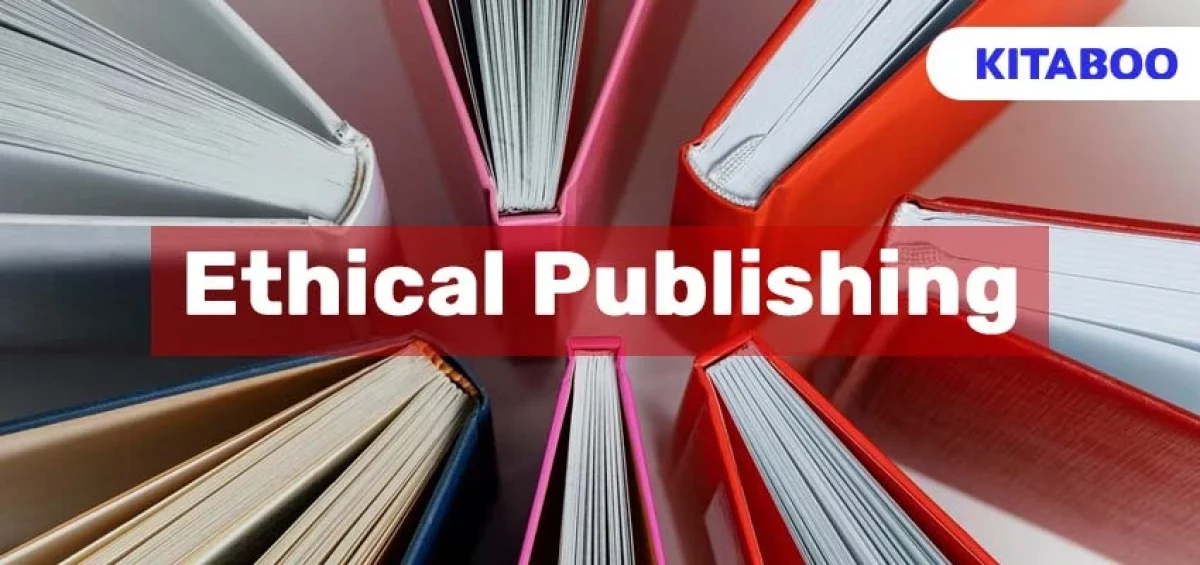Publication ethics are the rules of conduct, ethical standards, policies, and guidelines typically agreed upon between various stakeholders when publishing results of research or other scholarly work in general.
In K12 publishing specifically, these ethical standards ensure the integrity, validity, and quality of published work and aim to promote transparency and accountability among authors, editors, publishers, and readers as well. The best way to navigate this space is by using secure digital textbook platforms like KITABOO to ensure that your content is ethical, DRM-protected & encrypted, and can be accessed with unique access codes only.
While everyone, including publishers, researchers, and other stakeholders in the ecosystem, is responsible for managing publication ethics, this post aims to explore the concept of ethical publishing from publishers’ point of view. We will explore various ethical considerations in publishing, including responsible content creation, diversity & inclusion, and more. Read on!
Table Of Contents:
I. Considerations of Ethical Publishing
- Responsible content creation
- Quality and accuracy of content
- Proper representation of opinion
- Diversity and inclusion
- Corporate social responsibility
II. Conclusion
Considerations of Ethical Publishing
The key objective behind the existence of ethical standards for publication is to ensure high-quality publications and build reader trust so that deserving people receive credit for their ideas.
Having said that, there are several considerations that you need to take into account to maintain ethical publication guidelines.
Some of these are discussed below:
1. Responsible Content Creation
Responsible content creation here means promoting and publishing K12 content that is fully checked for facts and sourced in a legitimate way. Further, it is important to make sure that the content gives full credit where it is due and does justice to readers by not wrongfully misrepresenting information.
Empowering content creation is important because in today’s dynamic publishing environment, content ethics plays a key role which is not just limited to fulfilling the legal mandates.
For instance, it is a must for self-publishing teams to consider aspects such as plagiarism of content and copyright laws, intellectual property, data privacy, and advertising ethics to ensure that they are creating and publishing content responsibly.
2. Quality and Accuracy of Content
Another important thing to consider for K12 publishers when developing their content strategy is to ensure the quality and accuracy of the content. This essentially means ensuring to only publish content that is informative, relevant and accurate for the reader.
It is important to be cautious of the fact here that neither the headlines nor the article are too misleading or sensational. Likewise, it is critical to check if the content is factually correct, not missing any critical information, or lacks preliminary sources, quotes and citations from subject matter experts.
Ethical publications in the K12 sector always ensure to share content that includes links, data points, or references to original reports or surveys for authenticity. This is an essential aspect of maintaining credibility and trust among educators, students, and parents.
3. Proper Representation of Opinion
Ethical publishing requires opinion-based content to be represented and published properly. For instance, it is important to label the opinion-based pieces clearly. Similarly, while first-person storytelling or sharing an opinion is very much allowed, the sources used for the piece should be honest about what is opinion vs. what is editorial reporting.
Another rule for responsible and ethical K12 content publishing is to prioritize diverse sources and the ones that represent not just a segment but your entire audience. Also, make sure to share content across a variety of communication channels as the audience consumes content through different platforms as per their specific preferences.
4. Diversity and Inclusion
Diversity and inclusion in publishing largely represent a set of guidelines for fair and ethical publishing practices. For instance, diversity is primarily a representation of individuals as well as organizations with varied perspectives and experiences based on factors such as gender, race, ethnicity, sexual orientation, socioeconomic status, nationality, and more.
Likewise, inclusion in publishing translates to sustained action and long-term implementation of various policies and practices informed by a diverse set of perspectives.
Inclusive publishing ensures that diversity and equity are consistent throughout the publishing process. This is to provide a platform for different voices and perspectives that are otherwise not heard and make changes in the publishing process based on the respective needs and experiences of stakeholders.
5. Corporate Social Responsibility
In the context of ethical publishing, a close examination of corporate social responsibility clarifies the role of publishers in an age of open content and self-publishing.
Considering publishing is a global business, k-12 publishers also need to think about the impact of the operations of their respective companies and work towards producing content that matches the preferences and interests of a population that is diversified by gender and ethnicity.
Overall, publishers need to adopt policies and procedures that adequately support the environment, editors, authors, and reviewers in performing their duties under these ethics guidelines.
In this regard, utilizing digital textbook platforms like KITABOO enables publishers to incorporate corporate social responsibility (CSR) practices effectively. This ensures that educational materials are available to a broader audience, including individuals with disabilities who may benefit from features such as text-to-speech, adjustable font sizes, and other accessibility options.
To Conclude
Ethical standards in publication are crucial to guarantee high quality of distributions, the credibility of findings, and ensure that the respective authors duly receive credit for their work. In this post, we have covered the key considerations publishers need to take into account to ensure ethical publishing.
If you’re looking to leverage the potential of technology to address your business requirements and follow ethical publishing standards as well, KITABOO can help. We are a multi-platform publishing solution that facilitates end-to-end digital publishing, allowing you to revolutionize your distribution, marketing, and audience engagement tactics.
Reach out to us at KITABOO@hurix.com to know more!
Discover How An Ebook Conversion, Publishing & Distribution Platform Can Help You
Kitaboo is a cloud-based content platform to create-publish & securely distribute interactive mobile-ready ebooks.
You May Also Like








